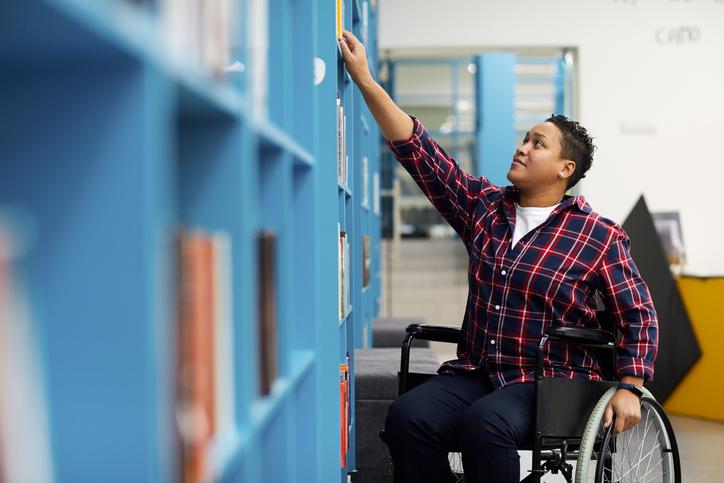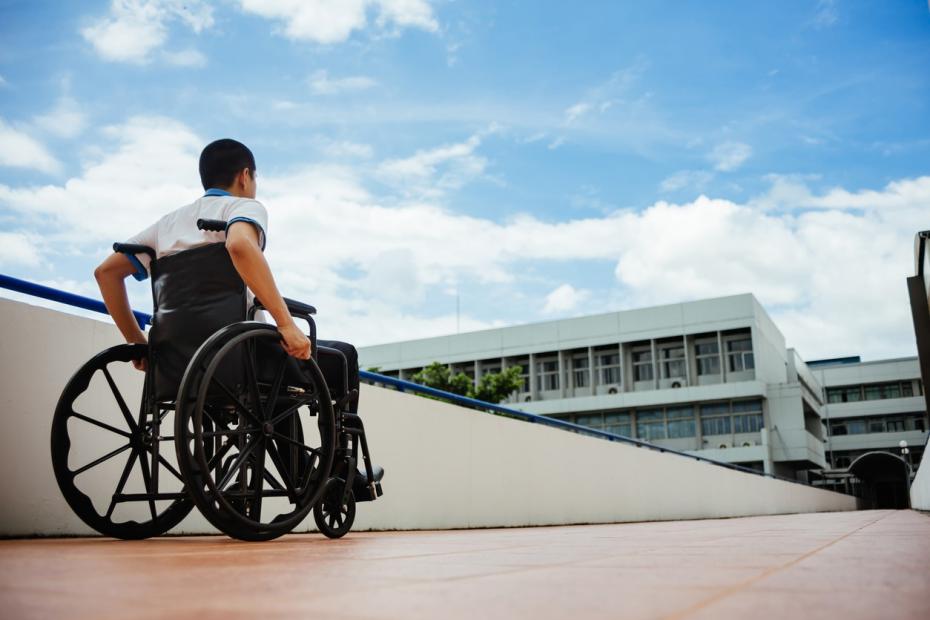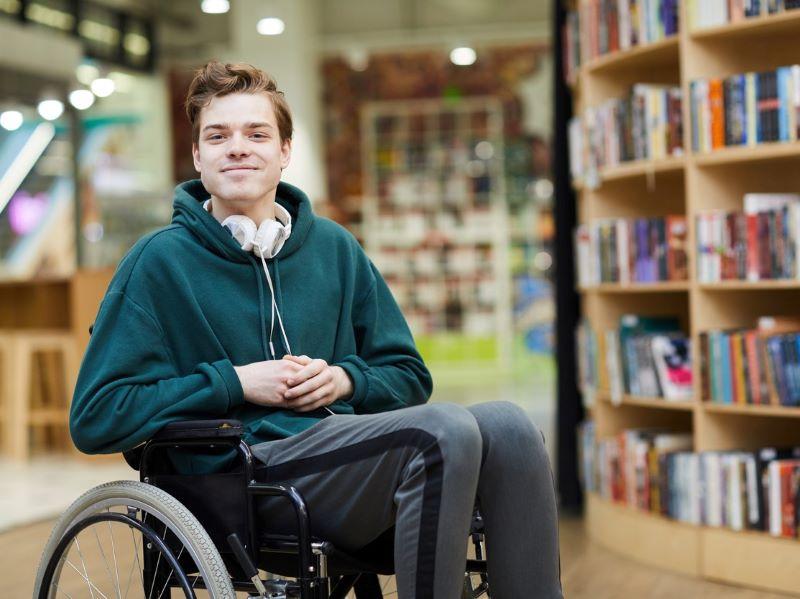
I’m a disabled student – this is what I worry about when applying to your university

The most recent data shows that 17.3 per cent of the UK’s home university students said they had a disability of some kind. This shows an increase on 2017, when this figure was just 13.2 per cent – but the proportion could be much higher. While they can no longer be refused admission because of their disability, many disabled students are still hesitant to attend university because of a lack of assistance.
These issues cut across many disabilities and can result in some of our most deserving students being prevented from attending universities they would like to go to if it weren’t for their disability. This is not necessarily because universities are uncaring, but few university disability panels have disabled members, meaning they often lack the necessary perspective to properly execute a plan for smaller, day-to-day issues. It can sometimes feel as though universities make great progress in one area but it then pales into insignificance because another issue has been neglected.
- Mentoring and teaching women with disabilities in universities
- Making online learning accessible for students with disabilities
- We can help students with intellectual disabilities shatter glass ceilings
I have cerebral palsy and am a full-time wheelchair user with a couple of minor organ issues, currently studying for my A levels. My disabilities are only physical, but this is something I’m constantly fighting to prove. I was refused by almost all sixth forms in my district since my special educational needs (SEN) school only offered me three GCSEs, and the vast majority of sixth forms have little to no wheelchair access. Others, meanwhile, weren’t sure I would be capable enough since I came from an SEN school.
The only school that not only let me speak to them but physically let me in the door is the sixth form where I’m currently taking my A levels. It gave me a chance, and I’m now a student council leader, Year 7 tutor and deliver PSHE workshops with other sixth-formers to younger year groups. However, going through the Ucas process recently has shown me that getting into sixth form didn’t get me out of the woods.
There are many small things that can stop, or at least deter, a disabled person from attending a particular university. These issues are often heightened at the UK’s top institutions, sometimes because of listed buildings but more often owing to a lack of insight into what is missing, locking disabled students out of top universities regardless of worth.
Below, for the able-bodied people who have the power to change things, I list some of the worries that disabled students will have before applying to your university, and how to help.
Facilities
Disabled students often worry about being charged more for accessible rooms, because it is usually the more expensive rooms with bathrooms that can be made accessible. Many disabled students would need this cost to be waived if it can be proved that the student could use standard accommodation if not for their disability and that the more expensive accommodation is essential for them.
Physical/general access
Physical access is another major issue for disabled students, especially when it comes to the dreaded listed building. While many universities have achieved an excellent standard of accessibility, older universities, through no real fault of their own, can present a challenge. The restrictions surrounding a listed building can vary depending on what grade of listing the building has. But in the event that a listed building is not able to become accessible there needs to be adequate funding and dedication to provide spaces that can be accessed.
This can be smaller scale, such as paying for a ramp to be made of the same stone as the building, or it might be the creation of modern extensions that help with access to all facilities, such as libraries, bathrooms, accommodation, lecture halls, on-site museums and more. Everything that is on offer to a non-disabled student should be available to those with a disability.
Application assistance
The application process is daunting for all applicants, but this can be amplified when you also have to be sure you’ll have access to the facilities required to level the playing field. Often, though, this is something the applicant has to judge for themselves based on a combination of touring physical grounds, asking quick questions on busy open days, the internet and word of mouth.
Ideally, there should be extra, individual, allotted time for disabled students to discuss these matters with a member of the university access team. This should take place virtually to allow students to swiftly and efficiently decide whether the university would be right for them. If they need more clarification regarding physical access then in-person meetings should also be made possible upon request, especially as open days are rarely suitable for doing so.
The Ucas form
Dyslexic students would benefit from the Ucas application form being written or adapted by someone from a dyslexia-friendly background. Meanwhile, students with sight impairments could gain from a speech button being made available for the text in the form. Such assistance would allow students to work on their personal statements independently, giving them more time to complete and redraft their overall application without working around someone else’s schedule or feeling like a burden.
Travel and transport
Travel and transport are crucial factors when disabled students are deciding where they will attend university. If a student is unable to drive and/or unreliable train assistance makes commuting difficult, they are likely to live at the university or in its local area, so they need to be able to get around their new home.
Disabled students are particularly hesitant to go to university in London because of its crowded and often inaccessible transport system. The Elizabeth line is the only fully accessible underground line in London, which can only take you so far (literally). Other forms of London transport such as accessible cabs can be very expensive, while buses can be slow and fares add up quickly, too. In such situations, there is an argument for university-based transport being added to the student loan. Students would have the option to pay more into their student loan in exchange for university transport to necessary academic locations, particularly in spread-out university cities. This could come in the form of a university-/government-owned vehicle specific to this function, providing more stability and affordability than taxis while retaining flexibility.
Such an arrangement would mean the university wouldn’t be liable to pay and the costs wouldn’t cut into already stretched student living expenses. Although admittedly difficult, this could be applied to many university cities with the right arrangements.
Choosing and applying for university is a daunting time for young people of every stripe. Additional help such as that outlined above could make things just a little more bearable for disabled students in the UK and beyond.
Phoebe Allen is currently studying A levels in history, sociology and English literature. She is an advocate for disability equality and access to higher education for all.
If you found this interesting and want advice and insight from academics and university staff delivered direct to your inbox each week, sign up for the THE Campus newsletter.


